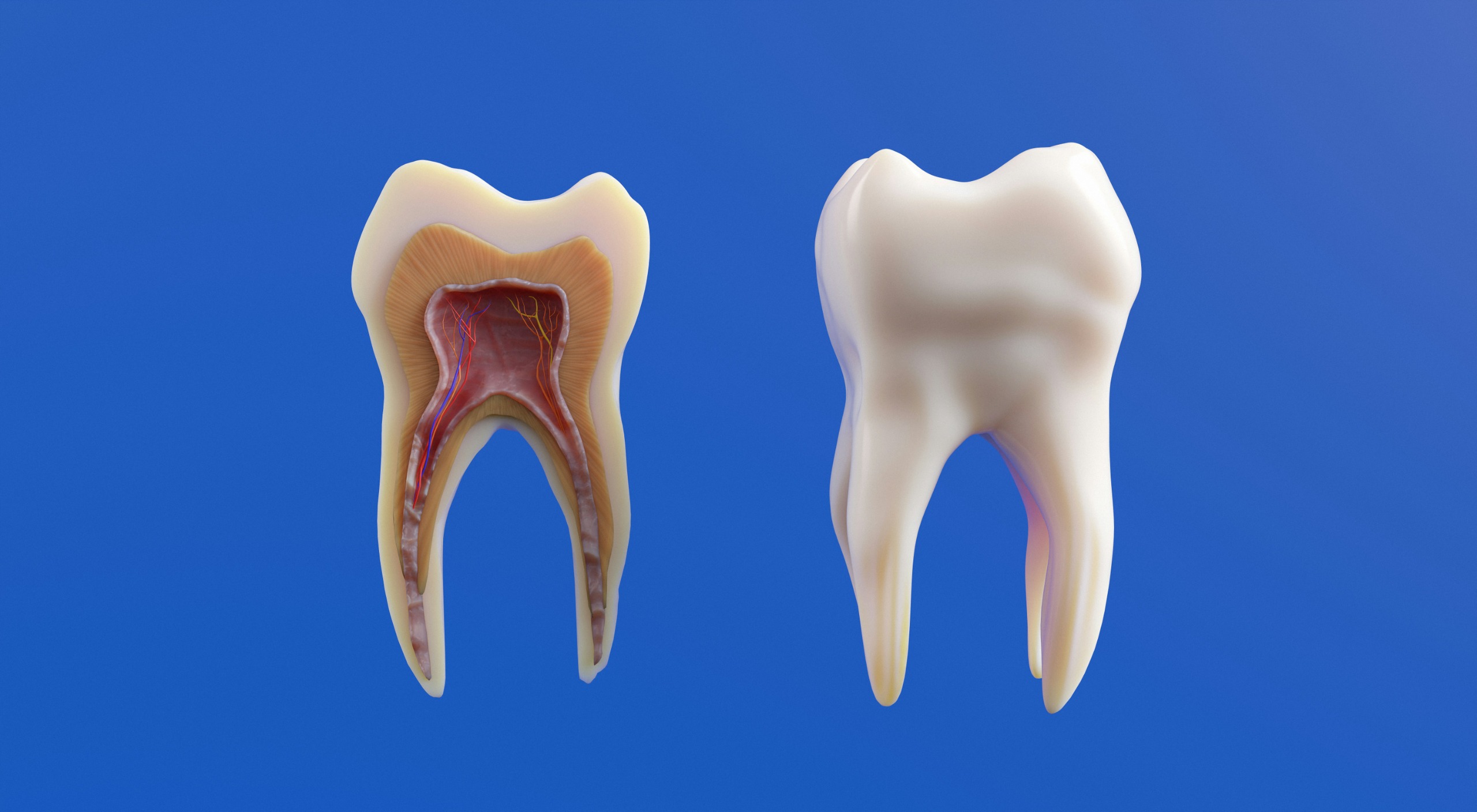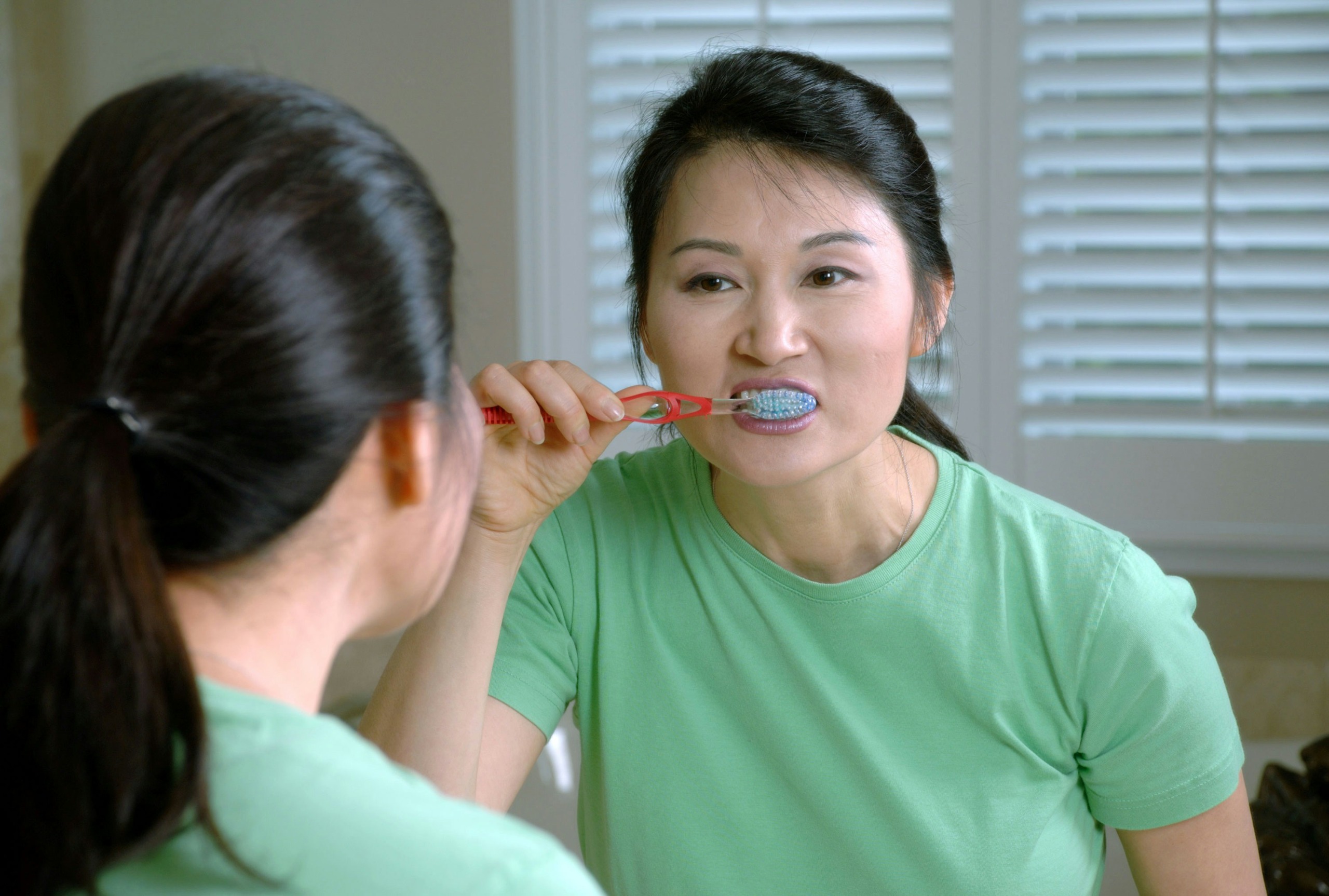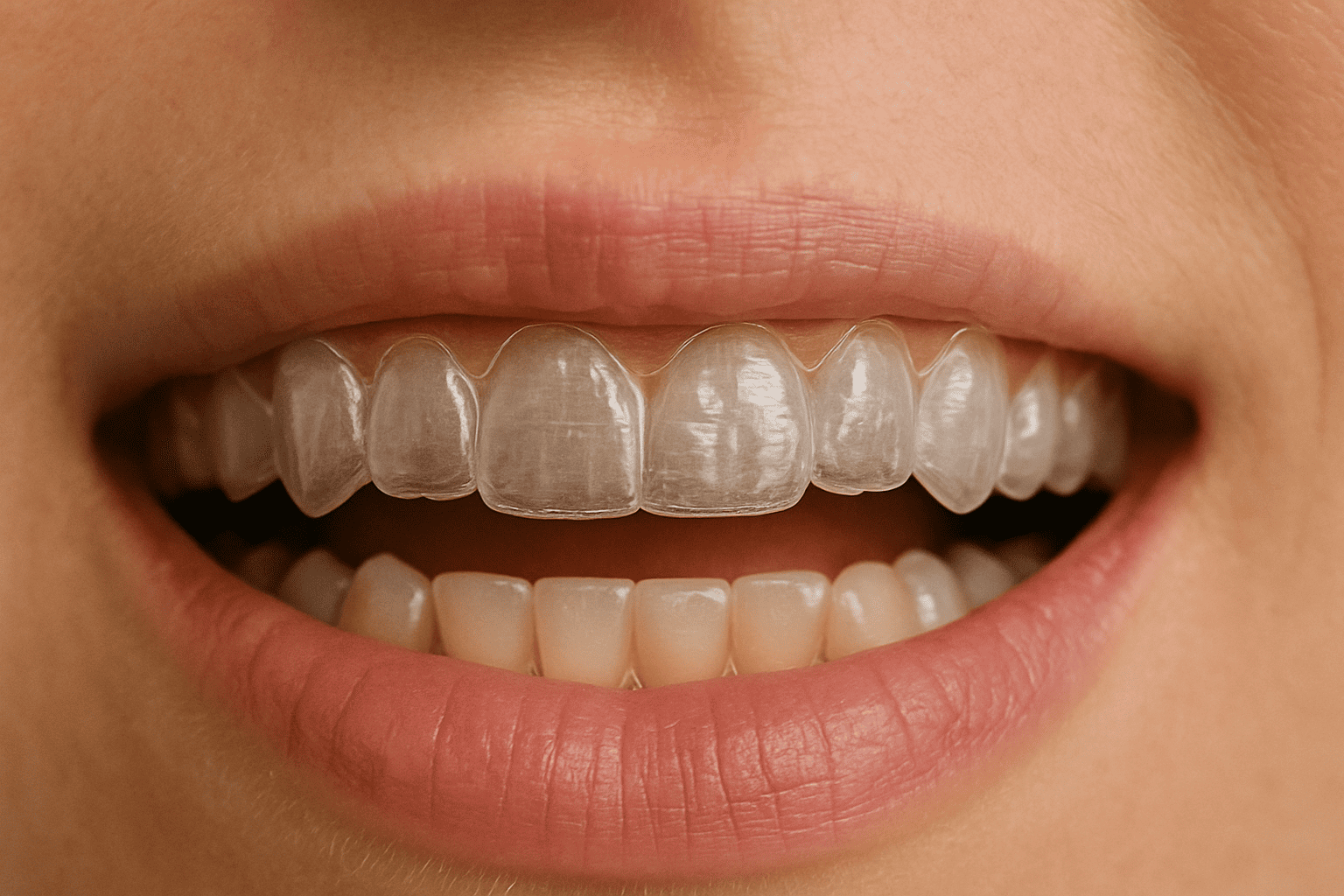Dental Sensitivity: Causes & Treatments
Flinching at cold drinks or hot foods? We’ll cover what causes dental sensitivity, how to treat it, and simple tips to keep your smile comfortable.

Ever wince when you sip a cold drink or bite into a hot soup? That sharp, sudden pain in your teeth is dental sensitivity, and it’s something 1 in 5 to nearly half of adults experience at some point. Also known as dentin hypersensitivity, it’s a brief but intense discomfort triggered by hot, cold, sweet, or acidic foods and drinks, or even brushing or cold air. It happens when the softer layer beneath your tooth’s enamel, called dentin, gets exposed, letting stimuli reach the nerves inside. While it’s often manageable, ongoing sensitivity could point to bigger dental issues.
In this post, we’ll explain in simple terms what causes this “zing,” how to treat it, and ways to prevent it. Always check with your dentist for advice tailored to you, as this information is for general knowledge only.
Understanding Dental Sensitivity
Dental sensitivity occurs when dentin, the layer under the tooth’s hard enamel (or the root’s thin covering), is exposed. Dentin has tiny tubes that connect to the nerves in the tooth’s core (the pulp). When the enamel or the root’s covering wears away, these tubes allow hot, cold, or acidic substances to trigger the nerves, causing a quick, sharp pain. Think of it like a straw letting sensations reach the nerve, making your tooth “zing.” The pain is usually short-lived and tied to specific triggers, like ice cream or hot coffee.
Sensitivity can make eating, drinking, or brushing uncomfortable, keeping you from enjoying your favorite foods or drinks. It might also be a warning sign of problems like cavities or gum issues, which could worsen into infections or tooth loss if ignored. Tackling sensitivity early keeps your smile comfortable and healthy.
Causes of Dental Sensitivity
Several factors can lead to dental sensitivity, from everyday habits to underlying dental issues. Understanding these causes helps you identify what’s behind your discomfort and take steps to address it. Here’s a straightforward look at the main reasons.
Tooth Enamel Erosion
Your teeth are coated with enamel, a hard protective layer. Over time, acidic foods and drinks like soda, citrus fruits, or wine can erode this shield, leaving the softer dentin exposed. Acid reflux or frequent vomiting, as seen in conditions like bulimia, introduces harsh stomach acid that further wears down enamel. Brushing too hard or using abrasive toothpaste can also strip it away.
Without enamel, your teeth not only become sensitive but also risk cavities and may appear yellow as dentin shows through.
Gum Recession
Healthy gums cover your tooth roots, which are shielded by a thin layer called cementum. When gums recede due to gum disease, aging, aggressive brushing, or smoking, this layer wears away quickly, exposing dentin.
Exposed roots lead to sensitivity, increase the chance of root cavities, and can even cause loose teeth or affect your smile’s appearance.
Quitting smoking and regular professional hygiene appointments are key steps to keeping gums healthy and reducing recession.
Dental Cavities
Cavities form when bacteria in your mouth produce acid that eats through enamel and dentin, creating holes that let hot, cold, or sweet stimuli reach the nerves. Poor oral hygiene, a sugary diet, or dry mouth, common in older adults or those on certain medications, make you more prone.
Left untreated, cavities can cause nerve inflammation, which eventually may lead to infections and premature tooth loss.
Cracked or Chipped Teeth
A crack or chip from an injury, chewing hard objects like ice, or grinding your teeth can expose dentin or even the nerve, triggering sharp pain.
Cracks can deepen, leading to infections or tooth loss. Old or leaky fillings can also let stimuli seep in, so if you feel sensitivity near a filling, see your dentist to check for issues.
Tooth Grinding (Bruxism)
Grinding your teeth, often during sleep, wears down enamel and can create tiny cracks, exposing dentin and causing sensitivity. Stress, sleep apnea, or certain medications like antidepressants can make you more likely to grind. Beyond sensitivity, grinding may lead to broken teeth, jaw pain, or headaches. Wearing a mouthguard at night can protect your teeth from this damage.
Recent Dental Procedures
Procedures like teeth whitening, cleanings, or fillings can temporarily irritate dentin or nerves, causing sensitivity. Whitening, for instance, uses chemicals that may briefly affect dentin.
The discomfort usually fades within a week or two, but if it lingers, it could signal another problem. For whitening-related sensitivity, relief should come within a day or two. if it does not, consult your dentist.
Other Factors
- Dry mouth (from medications or conditions like diabetes) reduces saliva, which protects teeth.
- Some people have naturally thin enamel due to genetics.
- Braces or aligners can also cause temporary sensitivity.
- If you take medications that dry your mouth, have certain health conditions, or frequently whiten your teeth, you’re at higher risk.

How Dental Sensitivity is Diagnosed
Dentists determine sensitivity by asking about your symptoms, such as what triggers pain and how long it lasts. They also check your teeth for signs of enamel wear, gum recession, cavities, or cracks, and use tests like an air puff or cold water to identify sensitive spots. X-rays may be used to check for deeper issues.
If sensitivity is persistent or focused on one tooth, it might mean a cavity, crack, or infection, needing quick attention to avoid bigger problems.
Treatment Options for Dental Sensitivity
Dental sensitivity can often be managed with simple steps at home or more advanced treatments from your dentist, depending on what’s causing it and how severe it is. From soothing toothpastes to professional fixes, there are plenty of ways to ease the discomfort and get back to enjoying your meals without pain. Here’s how to tackle it.
- Desensitizing Toothpaste: Special toothpastes for sensitive teeth help block pain signals or seal dentin tubes. Brush twice daily, and consider dabbing a bit on sensitive spots for a minute before rinsing. It can take a few weeks to feel relief.
- Soft-Bristled Toothbrush: Switch to a soft or extra-soft toothbrush to avoid damaging enamel or gums. Electric brushes with gentle settings can help too.
- Avoid Triggers: Cut back on acidic or sugary foods/drinks, such as soda or candy. Use a straw for drinks and rinse with water afterward. Wait 30 minutes before brushing.
- Lifestyle Adjustments: Chew sugar-free gum with xylitol to boost saliva. If you have acid reflux, talk to your doctor about managing it. For grinding, try wearing a mouthguard.
- Fluoride Treatments: Dentists can apply a strong fluoride varnish or gel to strengthen enamel and block dentin tubes. It often works in days and lasts for months. Alternatively the dentist may prescribe a high fluoride content toothpaste to use at home.
- Dental Sealants or Bonding: A dentist can cover exposed dentin or roots with a protective resin or sealant, stopping sensitivity fast. .
- Gum Grafts: For severe gum recession, a surgeon can graft tissue to cover exposed roots, reducing sensitivity. Recovery takes a couple of weeks.
- Root Canal: If sensitivity comes from nerve damage or infection, a root canal removes the nerve, stopping pain.
- Laser Therapy: Some dentists use lasers to seal dentin tubes, offering quick relief.
- Fixing Underlying Issues: Cavities need fillings, cracks may need crowns, and gum disease requires treatment..
Home remedies are affordable and work for mild cases, but can take weeks. Professional treatments are quicker and more effective for severe sensitivity or specific issues like cavities, though they cost more.
Most sensitivity can be improved or fully resolved, but ongoing care may be needed for chronic issues like gum recession.
Preventing Dental Sensitivity
Keeping your teeth and gums healthy is the best way to prevent dental sensitivity or stop it from getting worse. Simple daily habits can protect your enamel, strengthen your teeth, and keep your gums in good shape, reducing the chances of that painful “zing.” Here are practical steps to follow:
- Eat smart: Cut back on acidic (soda, citrus) and sugary foods. Pair acidic foods with milk or cheese to balance acid levels. Chew xylitol gum to increase saliva.
- Brush gently: Use a soft-bristled toothbrush and gentle toothpaste for 2 minutes twice daily. Floss daily with soft floss or interdental brushes.
- Protect your teeth: Wear a custom mouthguard if you grind your teeth. Limit whitening treatments to once or twice a year.
- See your dentist regularly: Get check-ups every 6 months to catch cavities, gum issues, or worn fillings early.
- Manage health issues: Reduce stress to limit grinding (try relaxation techniques). Work with your doctor on acid reflux or dry mouth solutions.

When to See a Dentist
Visit your dentist if sensitivity lasts more than a few weeks despite home care, if pain is severe or affects just one tooth (which might mean a cavity or crack), or you see swelling, bleeding gums, fever, or tooth discoloration, as these could signal an infection.
Ignoring these signs risks serious issues like infections or tooth loss. Your dentist may use exams or X-rays to find the cause and suggest the right fix.
Living with Dental Sensitivity
While most cases of dental sensitivity improve within weeks with proper care, some people may need to manage it longer, especially if caused by chronic issues like gum recession or deep cavities. These conditions might not fully resolve without ongoing attention, and triggers like hot or cold foods can still cause discomfort if not handled carefully. Sensitivity can also make eating or socializing feel stressful, impacting your daily life.
Fortunately, with the right strategies, you can minimize pain and maintain a comfortable, healthy smile.
- Identify and Avoid Triggers: Figure out what sets off your sensitivity, like cold drinks or acidic foods, and steer clear when possible. Use a straw for beverages and sip water during meals to wash away acids, reducing irritation.
- Maintain Gentle Oral Hygiene: Stick to a consistent routine with a soft-bristled toothbrush and desensitizing toothpaste to prevent worsening sensitivity. Floss daily.
- Seek Support: If sensitivity affects your enjoyment of food or social situations, talk to your dentist for tailored advice. Connecting with others who deal with sensitivity, through online forums or support groups, can also offer practical tips and encouragement.
- Stay Proactive: Regular dental visits and good habits, like using a mouthguard for grinding or managing health conditions, help keep sensitivity under control and prevent complications.
Conclusion
Dental sensitivity can be a frustrating hurdle, but with the right approach, you can take control. By using gentle oral care, avoiding triggers, and seeking professional treatments when needed, you can reduce discomfort and protect your teeth. Stay proactive with regular dental visits and healthy habits to keep your smile pain-free and vibrant.






